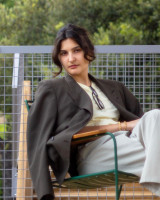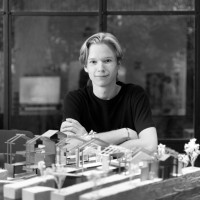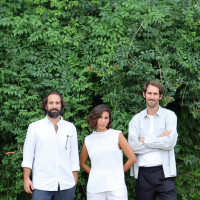Advisor: Marcos Parga
Dwelling space has been, and probably will continue to be, a highly contested space.
The economic, the political, and the social coalesce around it, and the tensions between these three forces have been shaping the material construct of our homes throughout history.
The current domestic landscape is characterized by an increasing gap between, on the one hand, the rise of major demographic shifts in most industrialized countries - that results in the production of new forms of cohabiting, and on the other hand, the reassuring and often celebrated clichés of traditional family life - an ideological blanket that hides the structural changes that society undergoes.
This means that, while the housing market all too often continues to replicate old stereotypical mono-functional urban developments of the post-war era, more and more people are actually living in very different circumstances, and “exceptions” have become the norm.
The current housing crisis thus is not only a crisis of scarcity and affordability, but also has to do with the lack of collective subjectification models and enabling spatialization strategies (polyvalence and empowerment): domestic living is both ideologically supported and de facto challenged by the current economy, a paradox that leads us to perceive as already obsolete most of the contemporary spatial configurations that prescribe our life in common.
So, if given the actual strain of resources and land, and the dissociation between provided living space and current socioeconomic conditions, houses as we know them today will no longer be economically or ecologically viable, what should take the place of these inherited dwelling structures that dictate and confine? And how alternative urban living environments will look like in order to enable and support?
This Advisory Group is based on the premise that this crisis is a unique call for a radical reinvention of the idea of housing and explores the current renaissance of collaborative forms of living and the architectures that emerge from them as a possible answer for those questions.
Since the advent of industrialization, and within an ever-expanding capitalist civilization based on processes of domestication, collective living has come to reference a distinctively different and unique way of life considered unconventional for many. This marginal condition allowed these experiences to play a significant role in the overall history of housing by providing the opportunity for reflection: over the last 150 years, collective living models have been witnesses to their era, revealing a great deal about how each epoch perceived lifestyles, lived together, operated their households, understood property and ownership, and excluded or integrated productive/reproductive labor into their cohabitation spaces. In doing so, they became critical antidotes to the fundamental logic of our capitalistic society, challenging existing gender, biopolitical and territorial hierarchies.
We will look closely at those historical models that often included a critique of the prevailing conservative ideas of living and housing and revealed social processes through spatial expressions.
From the French social utopias of the 19th century and the Garden Cities of early modernism to hippy communes and squatter movements of more recent decades, the aim is to reveal how these previous experiences inform contemporary cooperatives, autonomous housing projects and architectures of sharing that are emerging across the world as an important part of a seismic shift towards a socially responsible architecture that seeks to respond to the key social challenges of our time.
This Advisory Group will emphasize the construct of a clear research project. The goal is to conduct a design-based research on new forms of collective living, culminating in a proactive investigation into housing alternatives and urban/non-urban futures developed from a tangible perspective.
So, in addition to preliminary short investigations on subjects related to the AG’s main topic, there will be a final design phase drawn from those previous findings, involving a speculative approach to the subject selected by each student. During the semester, researchers will be asked to evaluate the role of architects (and by extension, of Architecture) in the redefinition of a new form of life together, and the importance of the architectural expression in giving consistency to the political claims of ways of living otherwise.
tuesday, may 2, 9:30 AM - 12:45 PM, room 325 & 3rd floor atrium
Internal Critics: Rodriguez, Miller
| 9:00 AM |
Protik Choudhuri Assemblage Dwelling |
| 9:45 AM |
Leyla Ramelmeier Dismantling the Patriarchy |
| 10:30 AM |
Aqila Lamia Primauli Bakri Shopping in my Backyard |
| 11:15 AM |
Irene Suescum Domestic Inside Out |
| 12:00 PM |
Tyler James Digitization of the Den (Slocum 325) |











